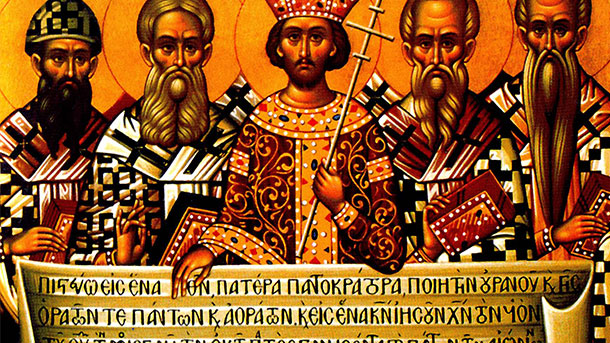This post is a response to Zach, who responded to my article about words. The discussion goes back further than these articles and rallies around whether the word “ecumenical” should be used as a descriptor for Morning Walk. Fundamental issues such as the use of words have become the crux of the debate, which led to the posts that we have written.
It turned out that the first half of my article was of little use, because Zach has claimed to agree all along. I felt somewhat betrayed, because I recall very vividly when he claimed (in a chat setting) that “etymology” should be used to determine the meanings of words. Because it is difficult to provide concrete evidence for these previous claims, I will move on with the assumption that Zach and I have always agreed on basic semantics.
There also seems to be general agreement on the rest of the matter. Zach does not believe that we should manipulate language, but only that we should resist the changes that the Left makes to the use of words. I somewhat agree, so long as this resistance is done wisely. I will use the word “bigot” to illustrate my views.
Traditionally, “bigot” referred to one intolerant towards those of differing opinions. The Left has changed the meaning of the word “bigot” to refer to a kind of heretic of the Leftist ideology. A bigot is someone who questions a left-wing narrative about anything. Terms like racist, sexist, homophobe, and islamophobe more specifically refer to heresy with respect to the Leftist narrative on race, gender, sexuality, and Islam. These new meanings, especially of the original word “bigot,” are now more ingrained in the perception of most people, than some of the old meanings. Should we resist this change? Perhaps. But there are ways to do it that bring forth confusion instead of clarity. For example, simply using the word bigot correctly without any commentary can make the conversation more complicated. Similarly, playing dumb about the way others use the word is also counterproductive. If someone says “bigot,” implying the new definition, it is quite silly to pretend as if the person used the old meaning and move from there. These things can be done for the purpose of fun and humor, but not much more.
More appropriate would be to explain to the person, on a very explicit level, what the whole situation is with “bigot,” from what the word is supposed to mean, to what he may mean in the specific instance. Just as productive would be to ask him directly what he means when he uses the word. It would also be useful to make a distinction between the old definition and the new, perhaps introducing a term like “classical bigotry.” These strategies will lead to an actual honest conversation about how the word ought to be used, instead of a giant ball of semantic confusion. To complicate is not the solution to oversimplification; and to simplify is not the solution to over-complication. The solution to both of these things is to clarify.
Now back to the word “ecumenical”… No matter what we think it is supposed to mean, the word has real connotations, and there are real effects of the word’s use. I do not wish to be associated with a reckless striving for reunification at the expense of principle. Orthodox Christianity is currently divided on the subject of “ecumenism” (whatever it may mean), and I currently hesitate to take a side. It is a divisive subject on which I do not hold a strong opinion. To describe Morning Walk as ecumenical would be embarrassing to me, and it would be confusing to many others. We can theorize all day about what the word can mean or should mean, but in reality it has the effects that it has. If we are to “bring back” the standard meaning of the word, it must be done wisely, as with the word “bigot.” If there is any discussion of using the word to describe Morning Walk, it must be displayed with a thousand asterisks, followed by a very clear explanation of what it means and what it doesn’t mean.
I must finally add that I do not associate very strongly even with the “old” concept “ecumenism” or “ecumenical.” Orthodoxy is not meant to change its doctrines or the Nicene Creed based on dialogue with non-canonical churches. Both clergy and laity can establish positive relations with those of other faiths, and these efforts may include participation in various common purposes. Morning Walk is an example of laity members from different branches of Christianity finding common ground on certain social issues and building a strong community based on these similarities. If these practices are “ecumenical” then it is an introduction of a new definition rather than a return to the traditional meaning.


Leave a Reply